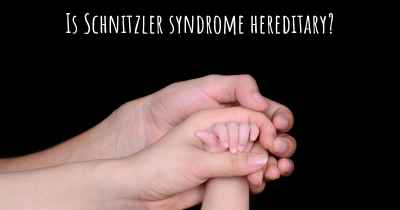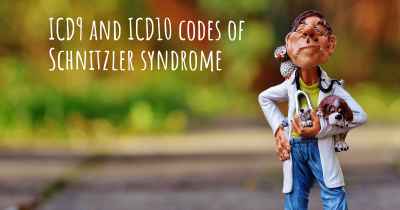Which are the symptoms of Schnitzler syndrome?
See the worst symptoms of affected by Schnitzler syndrome here

Schnitzler syndrome is a rare and chronic autoinflammatory disorder characterized by a combination of symptoms that can significantly impact an individual's quality of life. The condition was first described by Dr. Liliane Schnitzler in 1972 and is often underdiagnosed due to its rarity and the similarity of its symptoms to other diseases.
Symptoms:
1. Recurrent Fever: One of the hallmark symptoms of Schnitzler syndrome is recurrent fever. Patients experience episodes of fever that can last for several days or even weeks. The fever is typically accompanied by other symptoms, such as fatigue, malaise, and general discomfort.
2. Chronic Urticaria: Another prominent feature of Schnitzler syndrome is chronic urticaria, which refers to the presence of persistent hives or raised, itchy skin lesions. These hives can appear on various parts of the body and may come and go over time. They can be quite bothersome and cause significant discomfort.
3. Bone and Joint Pain: Individuals with Schnitzler syndrome often experience bone and joint pain, which can be severe and debilitating. The pain is typically migratory, meaning it moves from one joint to another. It can affect multiple joints simultaneously and may be accompanied by swelling and stiffness.
4. Enlarged Lymph Nodes: Swollen lymph nodes are a common finding in Schnitzler syndrome. These enlarged lymph nodes are usually painless and can be felt in various regions of the body, such as the neck, armpits, or groin. The lymph nodes may persistently enlarge or fluctuate in size.
5. Fatigue and Weakness: Many individuals with Schnitzler syndrome experience chronic fatigue and weakness. This can be attributed to the underlying inflammation and the toll it takes on the body. Fatigue can significantly impact daily activities and overall quality of life.
6. Abnormal Blood Findings: Schnitzler syndrome is associated with specific abnormalities in blood tests. These may include elevated levels of inflammatory markers, such as C-reactive protein (CRP) and erythrocyte sedimentation rate (ESR). Additionally, an increase in white blood cells and certain types of immune cells may be observed.
7. Other Symptoms: Some individuals with Schnitzler syndrome may also experience additional symptoms, although they are less common. These can include weight loss, muscle pain, headaches, swollen spleen, and liver abnormalities.
It is important to note that the symptoms of Schnitzler syndrome can vary from person to person, and not all individuals will experience the same combination or severity of symptoms. The onset of symptoms usually occurs in adulthood, with the average age of diagnosis being around 51 years.
Diagnosis and Treatment:
Diagnosing Schnitzler syndrome can be challenging due to its rarity and the similarity of its symptoms to other conditions. A thorough medical evaluation is necessary, including a detailed medical history, physical examination, and various laboratory tests.
1. Diagnostic Criteria: The diagnosis of Schnitzler syndrome is based on specific criteria established by experts. These criteria include the presence of recurrent fever, chronic urticaria, and at least two of the following: bone or joint pain, enlarged lymph nodes, abnormal blood findings, and a positive response to treatment with an interleukin-1 (IL-1) inhibitor.
2. Treatment: Currently, there is no cure for Schnitzler syndrome. However, treatment aims to manage symptoms and reduce inflammation. The use of IL-1 inhibitors, such as anakinra, has shown promising results in controlling symptoms and improving quality of life for many patients. Other medications, such as corticosteroids and nonsteroidal anti-inflammatory drugs (NSAIDs), may also be prescribed to alleviate symptoms.
3. Long-Term Outlook: Schnitzler syndrome is a chronic condition that requires ongoing management. With appropriate treatment, many individuals experience a significant reduction in symptoms and an improved quality of life. Regular follow-up with a healthcare provider is essential to monitor disease progression and adjust treatment as needed.
In conclusion, Schnitzler syndrome is a rare autoinflammatory disorder characterized by recurrent fever, chronic urticaria, bone and joint pain, enlarged lymph nodes, fatigue, and abnormal blood findings. Prompt diagnosis and appropriate treatment can help individuals manage their symptoms and improve their overall well-being.








